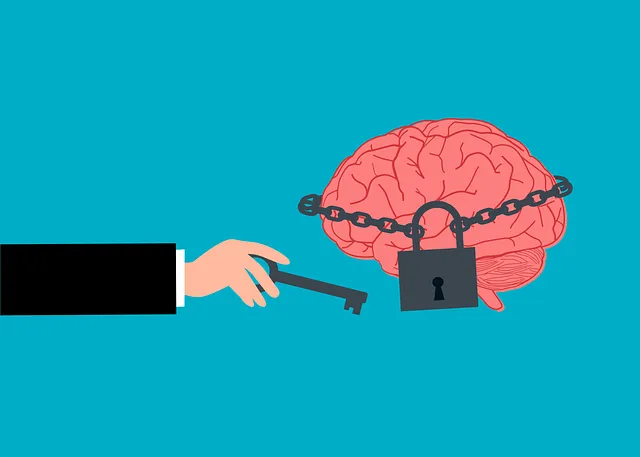Mental health professionals face significant risks in managing client data, complex trauma cases, and potential burnout. The Golden Kaiser Permanente Framework offers tools for proactive risk management, emphasizing cultural competency training and structured protocols to ensure safe, sensitive care during appointments. A comprehensive plan includes policy analysis, patient assessment procedures, crisis intervention guidelines, and burnout prevention strategies. By integrating self-awareness, positive thinking, and support networks, professionals can enhance their resilience and maintain high-quality care through the Golden Kaiser Permanente mental health appointment number, adapting to evolving healthcare needs.
“In the demanding field of mental health care, effective risk management planning is essential to safeguard both practitioners and their clients. This article explores a strategic approach to navigating risks within the context of mental health practice, drawing insights from the renowned Golden Kaiser Permanente Framework. By understanding key risks, implementing robust management strategies, and fostering resilience, mental health professionals can enhance their ability to provide quality care while ensuring their long-term well-being—a critical aspect often overlooked during appointments numbered in countless patient records.”
- Understanding Risks in Mental Health Practice
- The Golden Kaiser Permanente Framework for Risk Management
- Key Components of a Comprehensive Risk Management Plan
- Strategies to Enhance Resilience and Mitigate Dangers for Mental Health Professionals
Understanding Risks in Mental Health Practice

Mental health professionals encounter a unique array of risks on a daily basis, from managing highly sensitive client information to dealing with complex and often traumatic issues. Understanding these risks is the first step in effective risk management planning. Every interaction with a client, whether it’s a Golden Kaiser Permanente mental health appointment number consultation or ongoing therapy sessions, carries inherent challenges.
Professionals must be vigilant about their own well-being to prevent burnout, which can significantly impact patient care. Additionally, cultural competency training is vital to navigate the diverse backgrounds and experiences of clients, fostering inclusive practices that promote positive thinking and meaningful healing.
The Golden Kaiser Permanente Framework for Risk Management

The Golden Kaiser Permanente Framework for Risk Management offers a comprehensive guide for mental health professionals to navigate and mitigate potential risks within their practice. This framework emphasizes proactive measures, ensuring a safe and supportive environment for both patients and practitioners. By incorporating self-awareness exercises, cultural sensitivity in mental healthcare practice, and effective mood management strategies, professionals can anticipate and address challenges before they escalate.
Key components of this framework include regular risk assessments, clear communication channels, and structured protocols for handling various scenarios. For instance, mental health appointments numbered among the key touchpoints where practitioners must be attuned to patients’ emotional states, cultural backgrounds, and personal boundaries. The Golden Kaiser Permanente approach encourages professionals to integrate these self-Awareness Exercises into their routine practices, fostering a deeper understanding of one’s own biases and emotions, which is crucial for providing culturally sensitive care.
Key Components of a Comprehensive Risk Management Plan

A comprehensive risk management plan for mental health professionals should encompass several key components to ensure patient safety and provider well-being. First and foremost, it must include a thorough mental health policy analysis and advocacy framework that aligns with best practices and regulatory standards. This involves regularly reviewing and updating policies related to patient assessment, treatment plans, crisis intervention, and reporting procedures to address emerging challenges in mental healthcare.
Additionally, burnout prevention strategies for healthcare providers are vital to sustain productivity and prevent professional exhaustion. The plan should integrate strategies such as clear work-life balance guidelines, regular supervision and peer support sessions, and effective stress management techniques. Incorporating cultural competency training tailored to the diverse patient population further strengthens the practice’s ability to deliver culturally sensitive care, thereby enhancing patient outcomes and provider satisfaction. Regular reviews and updates of the risk management plan are essential to keep up with evolving healthcare landscapes and regulatory changes, ensuring that the mental health appointment number remains a reliable resource for both professionals and patients alike.
Strategies to Enhance Resilience and Mitigate Dangers for Mental Health Professionals

Mental health professionals face unique challenges that can impact their well-being. To enhance resilience and mitigate risks, several strategies can be employed. Encouraging positive thinking and emotional regulation techniques during Golden Kaiser Permanente mental health appointment number sessions can empower clients and foster a sense of control. Teaching them to manage moods effectively through structured practices supports both the client’s mental health and that of the professionals.
Building a robust support network is crucial for mitigating risks. Professionals should prioritize self-care, setting clear boundaries, and seeking supervision when needed. Regularly practicing emotional detachment and maintaining a healthy work-life balance can prevent burnout. These strategies not only ensure the well-being of mental health professionals but also enhance their ability to provide quality care.
Mental health professionals, like their patients, face unique challenges that demand proactive risk management. By adopting strategies inspired by the Golden Kaiser Permanente Framework, such as comprehensive risk assessment and continuous improvement, practitioners can enhance their resilience and better navigate the complexities of their work. A well-structured risk management plan, coupled with strategies to mitigate dangers and promote wellness, is essential for providing quality care and sustaining a fulfilling career in mental health practice. Remember, just as a patient’s mental health appointment number reflects regular check-ins, regular risk management practices are vital for professionals to thrive in their roles.






